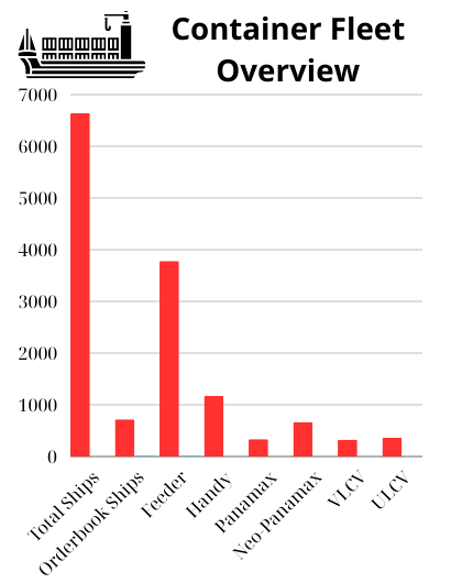- Feeder vessels, crucial for short-sea connections and feeding larger ships, constitute the majority of the fleet (3,784 ships), emphasizing their role in enhancing operational flexibility and connectivity.
- While fewer in number (364), ultra-large container vessels (ULCVs) handle a significant portion of cargo due to their immense capacity, making them vital for major long-haul trade routes.
- A notable 22% of the fleet is alternative fuel-ready, and an additional 15% is adaptable to such fuels, indicating a growing focus on environmentally friendly operations.
As of September 2024, the global container vessel fleet paints a picture of an industry at the crossroads of tradition and innovation. With over 6,643 ships in operation, the fleet is a mix of old and new, traditional and green technologies, all serving as the backbone of international trade, reports Container News.
The September 2024 report by Xclusiv Shipbrokers gives the overall picture of the container industry fleet dynamics.

Global container ship fleet snapshot
The distribution of vessel sizes within the fleet shows that feeder vessels, which are pivotal for short-sea connections and feeding cargo to larger ships, dominate the numbers with 3,784 ships. This is indicative of their critical role in enhancing operational flexibility and connectivity within the shipping network.
On the other end of the spectrum, ultra large container vessels (ULCVs), although numbering only 364, handle a vast amount of the cargo transported due to their immense capacity, emphasizing their importance on major long-haul trade routes. The fleet’s composition by fuel type reveals a strong preference for conventional fuel, with 63% of vessels powered in this manner.
However, there is a growing focus on sustainability, as evidenced by 22% of the fleet being alternative fuel ready and an additional 15% capable of adapting to alternative fuels. This shift reflects the maritime industry’s ongoing transition towards more environmentally friendly operations.
In terms of age scale, the container shipping fleet exhibits a diverse age profile with a considerable emphasis on both new and aging vessels. A significant 21.1% of the fleet consists of ships that are between 0 to 5 years old, underscoring recent investments in new and technologically advanced vessels.
This is followed by the 16-20 year-old age group, which represents 19.1% of the fleet, indicating a substantial portion of vessels nearing the end of their operational prime. Vessels older than 21 years comprise 13.1% of the fleet, highlighting the presence of older vessels still in service.
Did you subscribe to our daily Newsletter?
It’s Free Click here to Subscribe!
Source: Container News






















